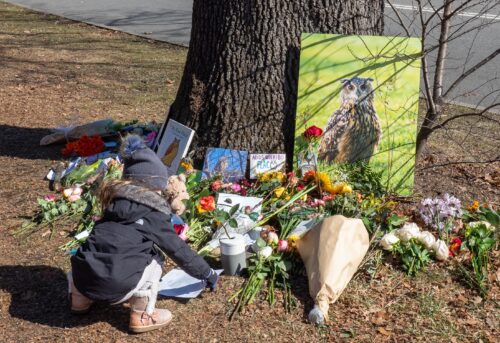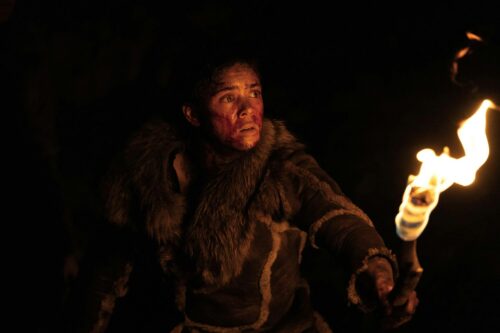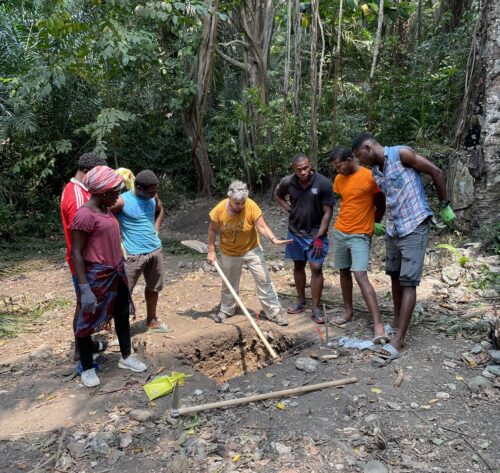The Cosmic Serpent

Most Carnival celebrations in Brazil have been canceled again in 2022 due to the resurgence of COVID-19, though larger cities like Rio and São Paulo are holding scaled-down versions of televised samba school parades at the end of April.
The unprecedented hiatus of this world-famous street celebration brought back decade-old memories of performing in the pounding drum section of a Carnival parade in the “Sambadrome” of Manaus in the Brazilian Amazon. During the months leading up to that exuberant performance, we rehearsed one night a week at a hot, crowded plaza in an impoverished neighborhood on the outskirts of the city, an experience that helped inspire my poem “The Cosmic Serpent.”
Surrounded by the human ocean of that parade—“slick yearning bodies / … in a herd of elbows”—I looked up at a crescent moon in the tropical night sky and began to move away from the crowd. The poetic gaze, like the anthropological gaze, leaves me forever with one foot poised to step back from any private or collective moment and view it as if from afar. Visceral currents, ritual spectacle, the endless babble of language—it all felt suddenly absurd and insignificant as I contemplated the vast, tumultuous ebb and flow of life across history.
My poem took shape at that moment as a meditation on the brevity and mystery of human life in our tiny corner of the galaxy, a feeling that has gained even greater poignancy after two years of a deadly pandemic that has hit Amazonian Brazil especially hard. The poem’s title comes from a book of the same name written by Swiss Canadian anthropologist Jeremy Narby. Inspired by visions that came from his experiences drinking the psychoactive ayahuasca brew in the Amazon, the book explores connections between the helical structure of DNA (as I phrase it, “lock of helical hair”) and the universal human symbolism around serpents.
Narby’s discussion of the ancient Egyptian symbol of ouroboros, the “serpent eating its tail,” inspired me to reflect on the karmic cycle of love, life, lust, and death so extravagantly on display in Brazilian Carnival celebrations.
Like the ouroboros, swallowing its own tail to continuously renew the cosmos, many of us are bitten by “sharp-toothed” desires that unlock our biological drive to reproduce. The joys of existence are “lent / as a blessing,” but they also constitute a form of enslavement to the “hormonal despot” of sexuality, ensuring we complete the vital cycle during our brief life span, “before the door / catches.”
Ultimately, our DNA heritage, the “copy / of a copy of a key” that connects us to the eternal chain of being and makes all life possible, is just on loan. And yet: Here we are, “shuddering at the pinwheel / sky.”
The Cosmic Serpent
I am bit by a copy of a key
fitting the lock
of a door ajar
a melon wedge
of moon lent
as a blessing by a sultry sun
upon slick yearning bodies
below
I fit snug in this body of nails
teeth hard things animate
in a herd of elbows
with eyes
snapping in recoil from
pain slave to pleasure
shuddering at the pinwheel
sky
I am hunger
in ebbs and flows
hormonal despot over the senses
one more consumer
lusting a wake
through this world
this mad race before the door
catches
I am bit by a copy
of a copy of a key
a lock of helical hair
a serpent eating its tail
beneath the spiraling galaxies
wondering what is
why where is my sharp-toothed
love?

































